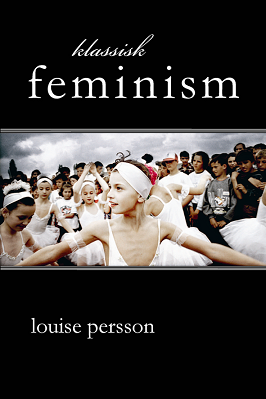 WTO causes rural economic bankruptcy, Peasants become sex workers: Ziteng
WTO causes rural economic bankruptcy, Peasants become sex workers: Ziteng
Ordinarily I avoid ideological debates, but this time I had to chime in, because the author of a nutty Swedish book actually lied about me in it. I don’t mean she distorted my ideas – that is conventional amongst feminists who feel they are engaged in a battle to the death about prostitution. No, this was a lie about me and my life: she described me as an employee of the Network for Sex Work Projects, and the company publishing her book didn’t get anyone to check her facts – even about living people, which is reprehensible. Since I am independent with a highly precarious income, and because my opinions are only my own, I could not allow the lie to go uncontested.
The book’s an attack on two activities: commercial sex and surrogate motherhood. The drivel about me is a very small part of the book, which also provides an egregiously selective and ideologically driven version of the history of sex worker rights movements. I decided to use the publishing opportunity to provide a more honest, if still very brief, version, complete with links to the evidence – probably the first such thing published in Sweden. The original book title can’t be translated exactly but means something like Being and Being a Product – the idea of commodification.
Here now is the English version of the piece, with its original title, changed (of course!) by the Newsmill editor to Kajsa Ekis Ekmans okunnighet om sexarbetare är skrämmande (KEE’s ignorance about sex workers is frightening). I would appreciate everyone disseminating this, please: Nowadays it is possible to virally combat disinformation.
Radical feminist pleasure in sex worker misfortunes: not a pretty picture
 Laura Agustín, 24 October 2010, Newsmill.se
Laura Agustín, 24 October 2010, Newsmill.se
At international events, radical feminist campaigners point and whisper about their enemies: She’s paid by the sex industry, you know. Or by the global pornographers. Or: She’s a known associate of traffickers. Disinformation as a technique is common in espionage, malicious election campaigns and rabid crusades to manipulate the emotions of an uninformed public. Disinformation means the deliberate telling of lies or the omission of key information.
If Kajsa Ekis Ekman in Varat och varan did not deliberately lie about me, then her research ability is very bad indeed. I have lived in Malmö for two years, my blog with its contact form is easily found. Ekman could have checked her facts with me personally but chose not to.
I am not, as Ekman claims, ‘an employee of the lobby organisation (anställd av lobbyorganisationen) Network of Sex Work Projects – which she could also have verified on their website. I am an independent researcher, writer and speaker, working freelance and best known for Sex at the Margins: Migration, Labour Markets and the Rescue Industry (Zed, London). Ekman avoids mentioning this title, called by The New Statesman ‘one of the most important books on migration published in recent years’. Neither this book nor the previous one, written in Spanish, are correctly described, in Ekman’s words, as ‘books about trafficking as a media myth’ (böcker om trafficking som mediemyt).
Anyone looking at the the publisher’s website can see that Sex at the Margins does not say we should ‘stop talking about trafficking’ (sluta tala om trafficking), but rather that all migrant women who sell sex do not feel themselves to be total victims and that to drastically label everyone that way disempowers the migrants whilst increasing the power of people – like Ekman – who believe they Know Best how everyone else should live. I did not ‘christen trafficking victims “migrant sex workers” (döper traffickingoffer till »migrerande sexarbetare«) however. Ekman failed to notice in her own research that Tampep, funded by the European Commission, began in 1993 (long before I appeared on the scene) as European Network for HIV/STI Prevention and Health Promotion among Migrant Sex Workers.
Citing quotations out of context is a standard tactic of unscrupulous crusaders. Given that I have published 50-odd articles and essays, apart from a blog, Ekman clearly went out of her way to find a paragraph that, removed from its context, would make me sound like a monster. When asked to write for a book called Women and the Politics of Place, where other authors were writing about women’s attachment to local geographies, I made an argument about cosmopolitanism as a ‘place’ migrants inhabit (thus the title).
Lies about me are ultimately unimportant (though I do treasure my independence): my reputation will not be ruined by an ideologue’s rantings. Leopard Förlag say they publish history, social debate and popular science (historia, samhällsdebatt och populärvetenskap). Ekman’s must belong to the debate category, since she is no historian. But for any category, Leopard had the editorial duty to check claims about living persons and prevent authors from engaging in disinformation – or doing such poor-quality research. Did Leopard not send Ekman’s manuscript out for review?
Distortions and omissions about a social movement are more important to uncover. Ekman pretends to give a history of a complex movement she despises, rights for sex workers. But ethical, competent historians, whether academics, journalists or popular writers, simply do not manipulate their material through selections and omissions in order to make a political point. When I am sent papers to review or edit that bristle with this kind of selective presentation of facts and polemical tone, I return them for rethinking, restructuring and rewriting. In a case like Ekman’s, I do not list all the errors, omissions and out-of-context citations – it would take too long. Instead, I provide some examples and expect the author to understand the lesson and do the research properly.
For many serious activists, theorists, researchers, social workers, epidemiologists, psychologists, policymakers and feminists the world over, the struggle of marginalised people who call themselves sex workers to have a voice in debates that concern them is nothing to laugh at. The movement focusses on health rights, sexual rights, labour rights, individual rights or human rights, according to the time and place.
Eurocentrically, Ekman focusses on a few countries near Sweden, but this rights movement has roots all over the world: Empower was founded in Bangkok in 1985, AMEPU in 1986 in Uruguay, the New Zealand Collective of Prostitutes in 1987, Rede Brasileira de Prostitutas in 1987, among numerous examples. Many of these groups were set up before the Internet made it easy to ‘network’, advertise or disseminate information on problems and principles. DMSC, founded in Kolkata in 1995, now has 65 000 sexworker members from the most disadvantaged social classes. AMMAR has been part of national labour union CTA in Argentina since 1996.
The movement does not have a single centre or directing board. According to local cultures and needs, arguments for rights as sex workers are couched differently. Sometimes the argument revolves around sexual rights, as with the South American project Ciudadanía Sexual. Sometimes, human rights are the basis of demands, as with Cambodian activists’ protests against police that force people into compulsory rehabilitation programmes. None of the organisations claims to represent sex workers as a general category; all know this would be impossible in the criminalised, stigmatised contexts where most people sell sex. What they do is bring together people with similar values, interests and demands, sometimes physically but often online. Note that some of these activists call themselves prostitutes, suggesting that Ekman has not understood that this movement’s core is not about changing words.
By reducing this movement to the only aspect that matters to her – ideology – Ekman distorts – or failed to understand – the history of debates on Violence Against Women at the UN level. She seems not to know that an official statement was made on trafficking and prostitution in the Vienna Declaration on Violence Against Women in 1993, in order to distinguish between genuine victims and people not totally coerced. She appears ignorant of the lively and conflictive prostitution debates at the Beijing Conference on Women in 1995, whose final Platform for Action called for fighting forced prostitution and trafficking, not prostitution itself. Omitting these key events in contemporary feminist history, Ekman makes Special Rapporteur on Violence Against Women Radhika Coomaraswamy’s use of both terms, sex worker and forced prostitution, sound like part of an arbitrary and sinister conspiracy.
In Sweden Ekman can get away with sneering at harm reduction, but she cannot begin to comprehend its importance in the rest of the world. Does she really believe harm-reduction theory and practice should not be used to decrease the incidence of HIV amongst marginalised populations in Asia? Grassroots networks of both drug users and sex workers have increasingly been influential in fora such as the International Harm Reduction Association, using principles of sexual self-determination and bodily autonomy. Scarlet Alliance, founded in 1989, is a network of sex worker organisations participating in Australia’s Federation of AIDS Organisations and using health promotion approaches, including peer education, community development and advocacy. Sex workers in Ghana receive HIV-prevention support on the basis that they are a Most-at-Risk Population, like men who have sex with men and transgender people.
The Ghanaian sex workers call themselves a union, by the way. Ekman tries to debunk the very idea of labour unions for sex workers through selective research in Europe, particularly through a parochial hatred of the Netherlands (long associated with several kinds of harm reduction). Although she claims to have spent two years on this research, most of the information she presents is available on organisation webpages. Her insinuation that the whole movement has been engineered by a few Dutch activists is sign of a true neocolonialist mindset: implying that people outside Europe are incapable of organising themselves or choosing the principles they believe in.
Ekman cherry-picked the European history, too – unless she simply failed to discover it. Sneering that the ICRSE ‘don’t really act anywhere’ (agerar inte fackligt någonstans), Ekman reveals an inability to comprehend that advocacy and social movements without significant funding function online in most of the world, through email discussion lists, skype conference calls and social networking software. Ekman sees only part of the ICRSE website, because she is not a member. Although she ridicules an early conference held in Brussels in 1986, how did she manage to omit a direct ancestor of that event held in Brussels in 2005? The ICRSE was founded at this conference attended by 120 sex workers and 80 ngo allies from around Europe.
There is no need for me to exaggerate what has been achieved in a movement beset by opponents at every turn. There is also no excuse for Ekman to sneer, in an unfeminist, unsolidary way, at the efforts of activists who do not happen to share her manichean world view. Why does Ekman want to smear this movement? Why does she hate people who advocate for their right to self-determination? Why does she lash out at people attempting to reduce the spread of HIV? Why should she appear to gloat when a sex-worker union (Comisiones Obreras in Barcelona) fails to attract members?
By focussing on Europe, Ekman tries to make all sex worker unions sound ridiculous, but she fails to understand that traditional trades unions are but one method for organising and advocating for rights. It may well be that classic trade unions are not the associative model destined to characterise the sex worker rights movement. Unionisation in all industries has weakened and diminished in most countries. In the case of the sex industry, the effort is severely impaired by numerous factors Ekman doesn’t understand. When businesses operate in informal economies, workers are hard put to negotiate with them. When people who sell sex are migrants without work permits and legal status to live somewhere, unions seem irrelevant. While the stigma attached to being a prostitute is so strong, most don’t want to label themselves, register with the state or otherwise assume a professional identity.
Ekman’s errors about London’s IUSW (part of the national GMB trades union) could have been avoided through a little real research rather than reliance on an old quarrel in the British blogosphere. She could even have consulted me, as I was once an active member. The man she accuses of running the show never did; the figure she provides on membership is seven years out of date. Since the GMB allows managers to join all its branches, the fact that an escort-agency manager joined is less significant and sinister than Ekman would like readers to think. She seeks to discredit STRASS in France by citing data from an abolitionist group without giving the date of its document, which anyway cannot be found at the webaddress she provides (note 167).
Ekman’s pleasure in other’s misfortunes – schadenfreude- is deeply unattractive. In a recent decision in Ontario that struck down several discriminatory aspects of prostitution law, the judge observed about ‘expert witness’ Melissa Farley:
Dr. Farley’s choice of language is at times inflammatory and detracts from her conclusions. . . Dr. Farley stated during cross-examination that some of her opinions on prostitution were formed prior to her research. . . For these reasons, I assign less weight to Dr. Farley’s evidence.
The judge would undoubtedly dismiss Ekman’s evidence, too, as should all critical readers.
– Laura Agustín, the Naked Anthropologist

















 Feminists have better sex is the latest
Feminists have better sex is the latest 




